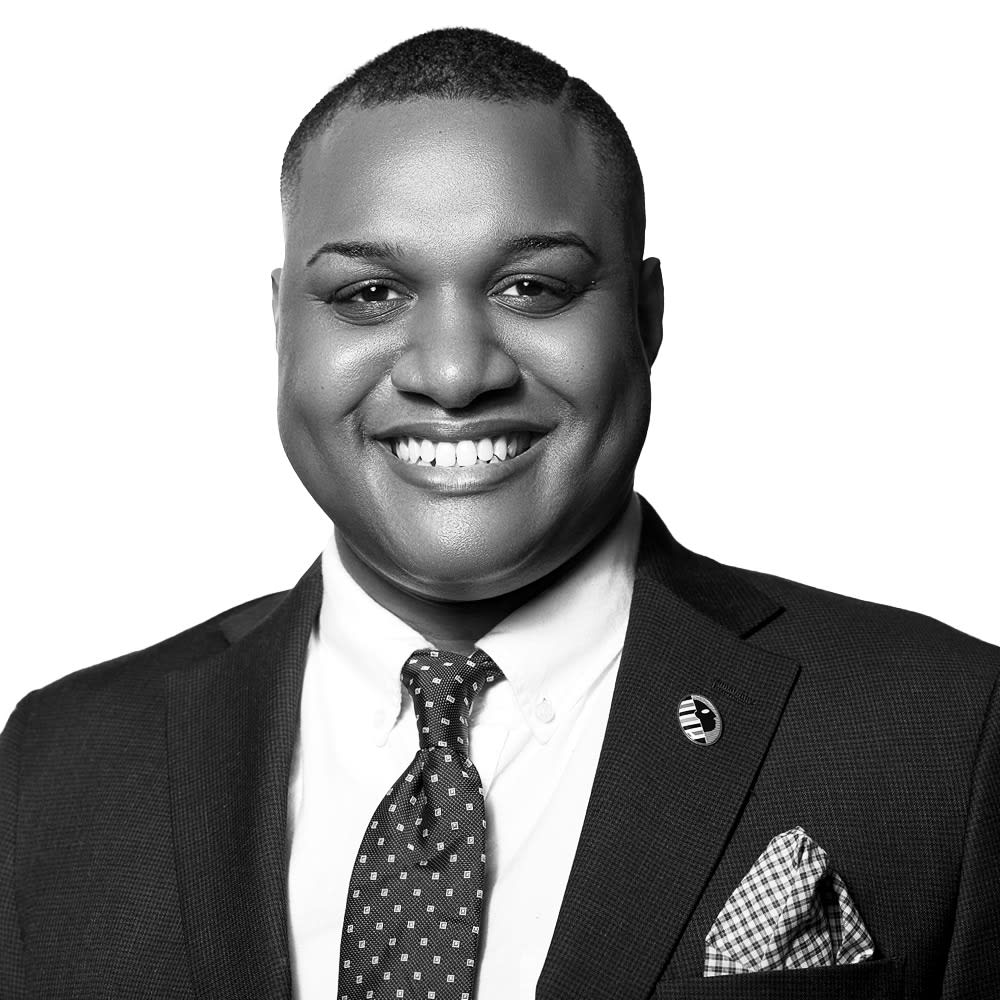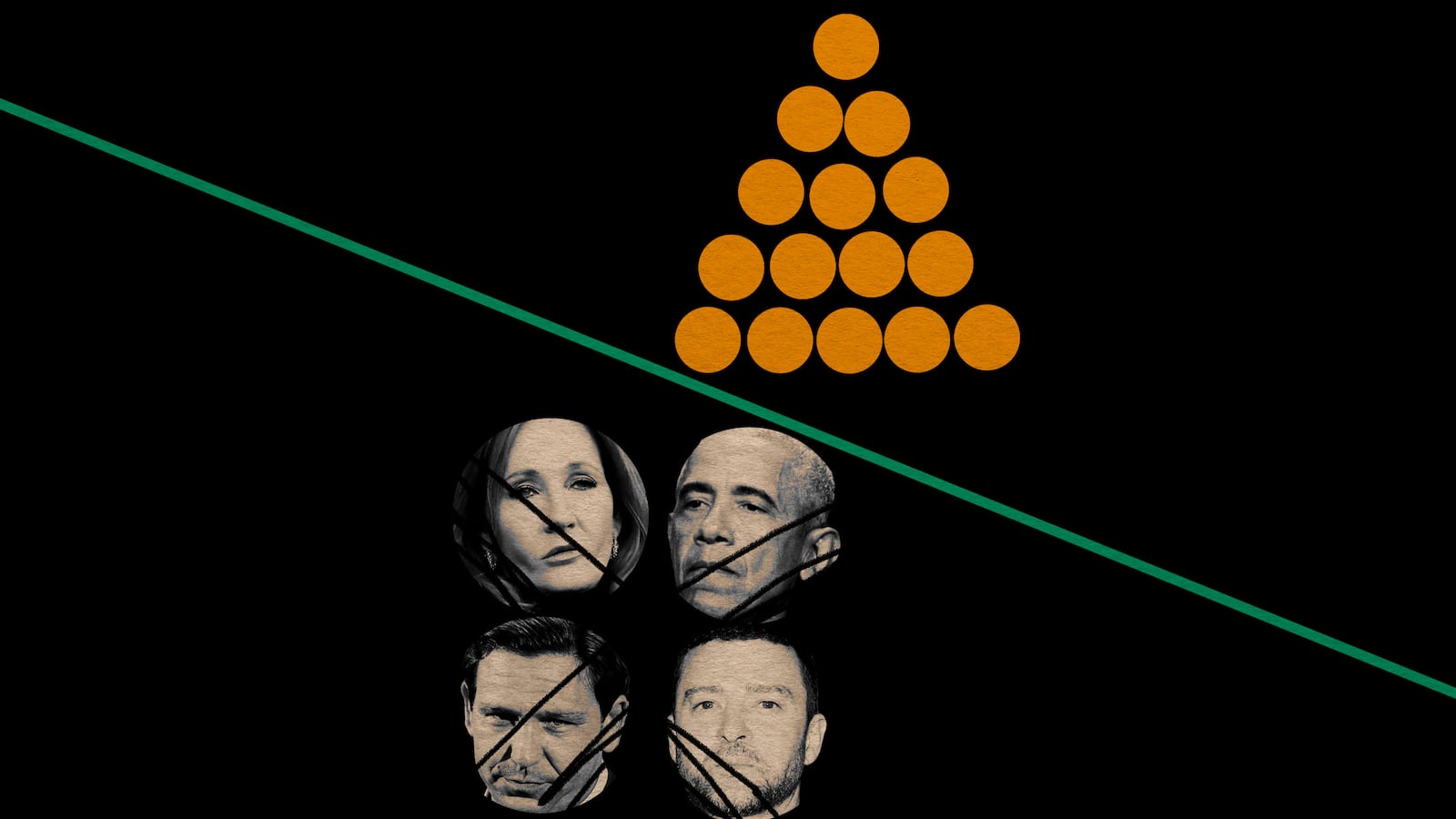In November 2019, when I wrote a guest op-ed in The New York Times criticizing former President Barack Obama’s “very boomer view of cancel culture,” I wasn’t prepared for the backlash I would quickly receive.
Both liberals and conservatives were up in arms about my critique of Obama, especially when he argued that cancel culture was “not activism.” It’s “not bringing about change,” he added. “If all you’re doing is casting stones, you’re probably not going to get that far. That’s easy to do.”
But that’s not how I viewed cancel culture, nor the individuals who are often connected to the controversial term. What Obama, Donald Trump, Dave Chappelle, Joe Rogan, Chrissy Teigen, J. K. Rowling, Fox News, and the hundreds of other politicians, celebrities, and influencers who have spoken against cancel culture don’t get is that it’s not simply about casting judgment, censorship, or intolerance of other viewpoints. It’s about power. Too often, the most powerful among us love to play the victim, acting as if the injustices they cause shouldn’t be met with consequences, while those with less power are supposed to suffer for it. That was when I decided to speak up.
For starters, my personal life has been nothing short of a case study on cancel culture. In 2016, I went viral for calling out Justin Timberlake on Twitter for cultural appropriation during the BET Awards. At the time, Timberlake, who had been previously criticized for his treatment of Janet Jackson during 2004’s Nipplegate, was flattering actor Jesse Williams for his memorable humanitarian award acceptance speech on racial injustice. I found the exchange ironic given that Timberlake had hardly checked the white privilege in his own life—and had avoided, and even benefited from the outrage that was disproportionately shoveled on Jackson for years. “So does this mean you’re going to stop appropriating our music and culture? And apologize to Janet too,” I tweeted.
Timberlake’s rather petty response back to me (“Oh, you sweet soul…”) led individuals from Black Twitter to jump to my defense. Even so, it didn’t protect me from his slew of fans who harassed me online for days following the controversy. It wouldn’t be until five years later that he would publicly apologize to Jackson (rather than create excuses or deflect altogether). At long last, there was some form of vindication. But the impact of that evening on Twitter stayed with me. It confirmed that those in power don’t want to be called on the carpet.
During that time, “cancel culture” wasn’t a buzzworthy term yet. It was still restricted to the Black community, where it was coined when a Love & Hip Hop reality star named Cisco Rosado made it trend in 2014 after he declared he would “cancel” his relationship in a dramatic break-up scene on the show. Black Twitter made the term another tongue-in-cheek gesture, joking that anything and everything could be “canceled.”
But like all things trendy and Black, white people appropriated it and turned it into the more serious catchphrase we recognize today. To “cancel” someone in 2023 is treated as an offense worth debate. It’s no longer the silly pop cultural term that was a symbol of Black culture—but rather a loaded political statement. The term became widely known in 2017, and it wouldn’t be too long before far-right conservatives would run on campaigns putting a stop to cancel culture, with CPAC hosting their convention under the theme “America Uncancelled.”
Once again, the most powerful among us were hijacking something that was created by the marginalized, and trying to destroy it. And what was the reason this time? Because now, under their purview, cancel culture was disrupting freedom of speech, expression, and other democratic values. What started off as a joke became weaponized as an assault on people’s ability to have and/or share different views, and everyone, no matter their political leanings, was buying into it.
In July 2020, following the massive impact of racial uprisings that lead to an increase of social justice awareness and accountability, more than 150 cultural luminaries signed “A Letter on Justice and Open Debate” that was published in Harper’s magazine. It claimed that cancel culture is “an intolerance of opposing views, a vogue for public shaming and ostracism and the tendency to dissolve complex policy issues in a blinding moral certainty.”
“We refuse any false choice between justice and freedom, which cannot exist without each other,” it continued. “As writers we need a culture that leaves us room for experimentation, risk taking, and even mistakes.”
The moment I read some of the signatories on the letter (J.K. Rowling, Noam Chomsky, John McWhorter), I smelled bullshit. This letter wasn’t about “a culture that leaves us room for experimentation, risk taking, and even mistakes,” it was about allowing those with influence to do whatever they wanted without feeling the shame of consequences from the public. In this reality, J.K. Rowling would like to freely express her transphobic ideals without others (who may be adversely impacted by those actions) weighing in.
Cancel culture had become a dog-whistle
This isn’t democratic, this is letting those with the most power continue to override the rest of us.
It would take this situation and several others for me to finally realize what was really going on. Cancel culture had become a dog-whistle, used by those in power to gaslight those holding them accountable. Now everything was being considered cancel culture. Disgraced former New York Governor Andrew Cuomo blamed cancel culture for his being ousted on sexual harassment allegations. Kevin Hart blamed cancel culture after being dropped from hosting the Oscars when his history of homophobic jokes came to light. Chrissy Teigen said she was in the “cancel club” after facing severe bullying accusations in June 2021.
The list went on and on until I was agitated enough to write a book to tell all of these people to essentially shut up.
The Case for Cancel Culture is a book that redefines what power is and how it can be checked. No, not everything is being canceled—and no, cancel culture isn’t anything new. Before there was cancel culture, there was callout culture, political correctness, witch hunts, and every other trendy dog-whistle you can think of that attempted to slander those seeking accountability.
In my book, cancel culture is defined as something that isn’t solely practiced by the far-right or far-left—but by all of us. Cancel culture is when people choose to cancel a person, place, and/or thing that they view as being detrimental to their way of life. It’s not simply a matter of personal taste, or disagreement. Translation: A food critic who gives a bad review isn’t partaking in cancel culture. It’s much deeper than that.
Consider what I like to call the “Amazon” example. If you choose to stop using Amazon for delivery because you find them too slow to drop off your packages—that is a matter of preference and taste that’s not impeding upon your values/livelihood. But let’s say you choose not to use Amazon because you don’t support their working conditions and/or treatment of employees—then you’re taking part in a boycott that has larger implications outside of insignificant issues.
Everyday people are choosing to boycott or reject things put in place and perpetuated by the richest, most powerful among us. Ordinary people have that right—and shouldn’t be gaslit for it. When thousands of women across the country stood up in favor of the #MeToo Movement—calling for the cancellation of the sexism, abuse, and bigotry they faced from powerful men—it was necessary for the advancement of our modern society. The same can be said for Black Lives Matter protesters who demanded to cancel the way policing in this country operated due to ongoing extrajudicial killings of unarmed people. One doesn’t have to personally agree with these stances to recognize that they are a part of our democratic right to assemble and protest. This is a far cry from censorship, or “casting stones,” as those in power so vehemently assert.
If the most powerful don’t understand—or refuse to understand—how cancel culture works, it’s time to push back on exactly why. Why wouldn’t they want the rest of us to have equal footing in challenging their authority? Why would they cosign the dissent to holding them accountable? Why wouldn’t they want to face even more scrutiny for the problematic things they might do?
Answer: Because throughout society, history has shown us that when the marginalized mobilize, it spells trouble for the powers that be.
America’s formation was sparked by hundreds of settlers dumping British tea in the Boston harbor. They weren’t canceling the tea because it tasted bad but because they were challenging the current “taxation without representation” they faced from British tyranny. Black Americans didn’t cancel buses during the Montgomery bus boycotts in the 1950s because they didn’t like the seats but because they were confronting white supremacy in the Jim Crow South. When LGBTQIA activists rioted at the Stonewall Inn, that wasn’t due to bad drinks and club music: It was because of the police brutality and discrimination they often faced in the New York City hotspot during that time.
In other words, cancel culture was the key to freedom for those who were denied it and had no other choice.
Cancel culture is something that is used by everyone, whether they own up to it or not. On the other end of the spectrum, though a conservative like Florida Governor Ron DeSantis outwardly criticizes cancel culture, he hypocritically supported policies such as “Don’t Say Gay” and recently dropped an AP course on African-American Studies from being studied in his state. Republicans across the country who often whine about “free speech” still seek to ban books on race in public libraries and forbid drag queens from reading them to kids. Is this not cancel culture in another form?
Cancel culture isn’t a political position, but a tool that can subjectively be good for some and bad for others depending on the issue, time, and place. For example, like a knife, cancel culture can either spread or cut—as is the case with all of our systems of accountability. The criminal justice system has its flaws and inconsistencies, but I wouldn’t want it to be completely abolished. The health-care system definitely could use some improvements, but I wouldn’t want to do away with it entirely.
Without cancel culture, what else is left for marginalized people seeking immediate change within their society?
My book argues that cancel culture is the only option left when institutions fail and powerful individuals run amuck. History has continued to remind us that the court of public opinion can outweigh everyone else when utilized effectively. It took over 20 years before now-disgraced R&B superstar R. Kelly was finally canceled. For all of the backdoor deals, slaps on the wrist, and warnings Kelly was given, it took a movement of Black women creating #MuteRKelly before he was finally held accountable.

It is for those reasons alone that the misunderstandings of this tool should not deter others from lifting up their voices. As we watch the most powerful erode democracy as we know it, I am reminded of how important it is to not let history repeat itself in its most cautionary ways. The cancel culture that brought us the Jan. 6 insurrection was the same cancel culture that help legalize same sex marriage, civil rights, union benefits, and more.
My book challenges readers to advance the latter to help combat the former. Let’s make cancel culture great again.






